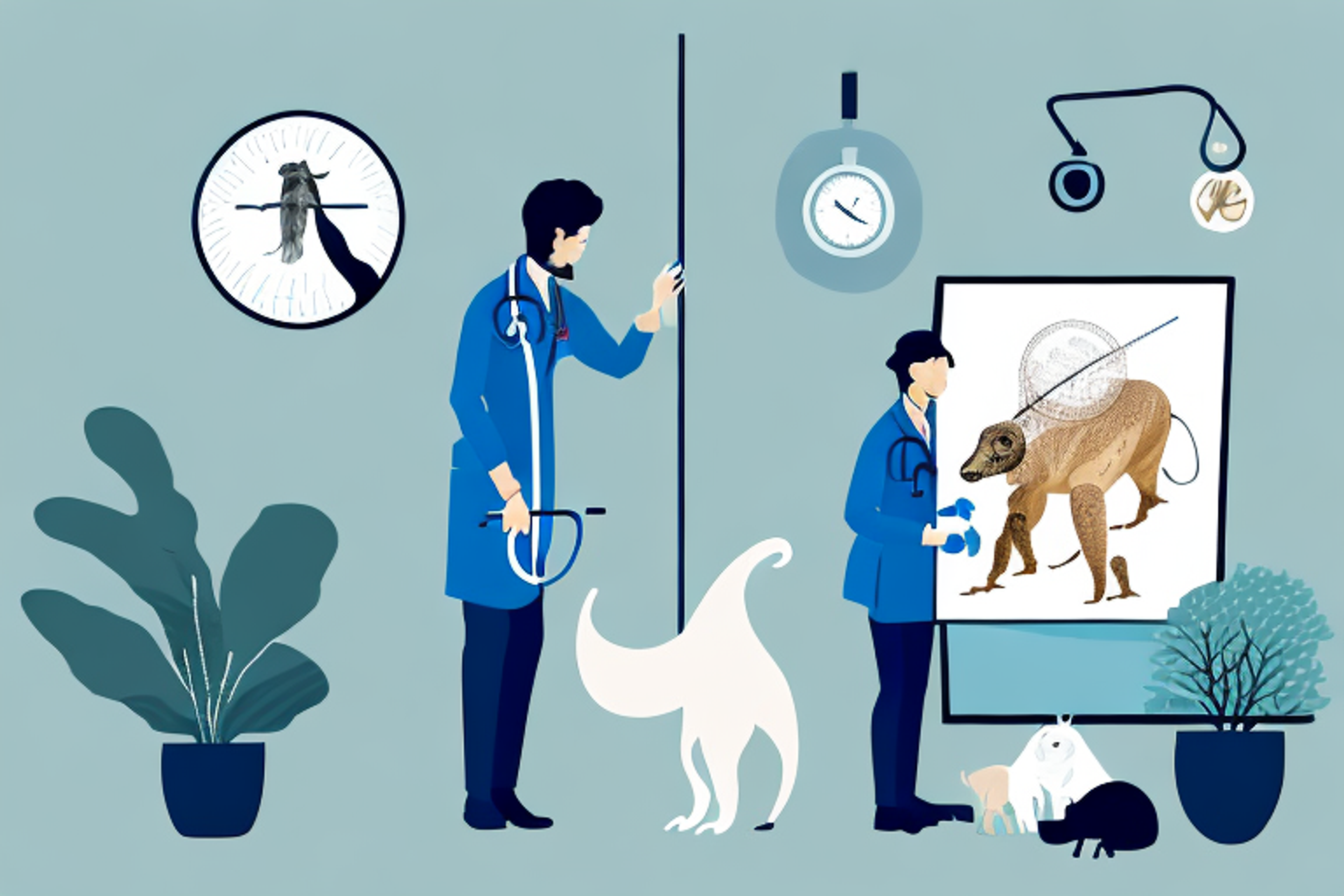How to Become a Nurse: Requirements, Degree Paths, and What to Know (2025)
If you're considering a career in nursing, this article is a must-read.
Posted April 10, 2025

Table of Contents
Free Event

Featuring Jaspreet K.
Ask Me Anything: Medical School Applications
Starting Friday, April 25
12:00 AM UTC · 30 minutes

Featuring Jaspreet K.
Pursuing a career in the nursing profession offers a rewarding opportunity to make a meaningful impact in healthcare. Registered nurses (RNs) provide essential patient care in various healthcare settings, ensuring quality treatment and support. This comprehensive guide outlines how to become a nurse, including educational pathways, licensure requirements, and career opportunities.
How to Become a Registered Nurse
Understanding how to become a registered nurse begins with knowing the educational requirements, available degree options, and the time commitment needed to complete these steps. Additionally, obtaining the appropriate nursing license and certifications is essential for professional nursing practice.
Educational Requirements for Nursing Programs
To become a nurse, individuals must complete a nursing program that prepares them for licensure and professional practice. Prospective students can choose from multiple types of nursing degrees, depending on their career goals:
- Associate Degree in Nursing (ADN) - A two-year nursing program typically offered by community colleges, focusing on foundational nursing skills.
- Bachelor of Science in Nursing (BSN) - A four-year degree providing in-depth coursework, leadership training, and a strong foundation in nursing science.
- Master of Science in Nursing (MSN) - A master’s degree designed for those pursuing advanced roles, including nurse practitioner, clinical nurse specialist, or nurse educator.
- Doctoral Degrees - Aimed at those seeking leadership roles in nursing research, education, or health care administration.
Some states also grant licenses to those with a diploma from an accredited nursing school. However, many states now require a BSN for licensure, and hospitals increasingly prefer BSN graduates.
Many institutions offer online nursing programs and online nursing school options for flexibility. Some nursing degree programs allow students to complete coursework remotely while fulfilling clinical hours in local healthcare settings. Additionally, MSN programs provide opportunities for RNs to further specialize and advance their careers in leadership or advanced practice nursing roles.

Nursing School Curriculum and Required Courses
A well-structured nursing education program equips students with the knowledge and skills necessary for effective nursing practice. Nursing curricula at accredited institutions incorporate a blend of theoretical instruction, laboratory training, and clinical experience to ensure students develop essential competencies for patient care. Coursework typically includes:
- Human anatomy and physiology – Provides foundational knowledge of body systems and functions crucial to diagnosing and treating medical conditions.
- Pharmacology and medication administration – Covers the principles of drug therapy, safe medication practices, and patient-centered care.
- Health assessment and patient care – Teaches comprehensive patient evaluation, including physical examination techniques and patient interaction skills.
- Behavioral sciences and ethics in nursing – Focuses on patient psychology, communication skills, and ethical considerations in healthcare settings.
Many students today opt for nursing degree online programs, which provide flexibility for those balancing work and education. These programs offer digital coursework and virtual simulations, while still requiring in-person clinical hours to ensure hands-on training. Additionally, many online nursing programs cater to working professionals, enabling them to complete their degrees while maintaining employment in healthcare settings.
Graduates with a licensed nursing degree or diploma typically qualify for entry-level positions as staff nurses, with opportunities to advance into specialized roles through continuing education and certification programs.
Prerequisites for Nursing School Admission
Admission to a nursing school requires meeting academic and professional prerequisites. Standard requirements include:
- A high school diploma or equivalent (GED)
- A minimum GPA (varies by program)
- Completion of prerequisite coursework, such as biology, chemistry, and psychology
- Submission of official transcripts and application fees
Some schools require previous healthcare experience, such as working as a certified nursing assistant (CNA) or licensed practical nurse (LPN), before enrolling in a nursing education program.
The Importance of Accreditation in Nursing Education
Selecting an accredited nursing degree program is crucial for ensuring a quality education. Programs accredited by organizations such as the Commission on Collegiate Nursing Education (CCNE) or the Accreditation Commission for Education in Nursing (ACEN) meet national standards for nursing instruction. Accreditation is also a prerequisite for taking the National Licensure Examination (NCLEX-RN), which is required to obtain an RN licensure.
Licensure and Certification Requirements
After completing an accredited nursing degree program, candidates must pass the NCLEX-RN to obtain a nursing license. The exam evaluates knowledge in key areas such as:
- Safe and effective care environments
- Physiological integrity
- Psychosocial integrity
The NCLEX follows a computerized adaptive testing format, requiring a minimum of 75 and a maximum of 265 questions. If unsuccessful, candidates can retake the exam up to eight times a year, with a minimum of 45 days between attempts. In 2022, the National Council of State Boards of Nursing recorded a 63.39% passing rate for NCLEX-RN.
In addition to passing the NCLEX, state boards of nursing may have additional requirements, including background checks. Many RN positions also require certifications in cardiopulmonary resuscitation (CPR), advanced cardiac life support (ACLS), or basic life support (BLS).

Career Opportunities for Registered Nurses
Graduates can pursue various career paths, depending on their nursing degree and specialization. Common roles include:
- Nurse Practitioner (NP) - Provides primary and specialty care, often requiring an MSN or higher.
- Nursing Family Nurse Practitioner (FNP) - Specializes in comprehensive family-centered care, often working in private practices, community clinics, or hospitals.
- Certified Registered Nurse Anesthetist (CRNA) - Delivers anesthesia services in surgical settings.
- Psychiatric Nurse - Specializes in mental health care and counseling.
- Nurse Midwife - Focuses on obstetrics and gynecological care.
- Advanced Practice Registered Nurses (APRNs) - Includes specialized roles such as nurse anesthetists, nurse midwives, and clinical nurse specialists, who provide high-level patient care and often work independently or in collaboration with physicians.
RNs can also advance their careers by pursuing doctoral degrees, engaging in graduate education, or obtaining specialized certifications.
Read: The Different Types of Medical Careers – and Which One is Right for You
How Long Does It Take to Become a Registered Nurse?
The time required to become a registered nurse (RN) depends on the chosen educational path, prior education, and state-specific licensing requirements. Below is an overview of the most common pathways and their typical timelines:
| Educational Pathway | Time to Complete | Description |
|---|---|---|
| Associate Degree in Nursing (ADN) | 2 years | Offered by community colleges, provides foundational nursing skills and prepares students for entry-level RN roles. |
| Bachelor of Science in Nursing (BSN) | 4 years | A more comprehensive nursing education that includes leadership training, research, and specialized coursework. Often required for higher-level positions. |
| Accelerated BSN (ABSN) Programs | 12–18 months | Designed for individuals who already have a non-nursing bachelor’s degree and want to transition into nursing quickly. |
| ADN-to-BSN Bridge Programs | 12–24 months | Allows RNs with an ADN to earn a BSN through flexible programs, often available online. |
| Direct-Entry MSN Programs | 2–3 years | For individuals with a non-nursing bachelor's degree who want to enter nursing at an advanced level, preparing them for nurse practitioner (NP) or leadership roles. |
Regardless of the educational path, students can register for the NCLEX-RN and apply for a nursing license approximately six weeks before graduation. Passing the NCLEX-RN is mandatory for all aspiring registered nurses to obtain licensure and practice in healthcare settings.
The choice of program depends on individual career goals, financial considerations, and time availability. Those seeking a faster route to becoming an RN may opt for ADN or accelerated BSN programs, while those looking for greater career mobility and higher earning potential often pursue a BSN or advanced nursing degree.

The Fastest and Most Efficient Way to Become an RN
For individuals seeking the quickest route to becoming a registered nurse (RN), an Associate Degree in Nursing (ADN) is typically the fastest option. ADN programs, offered by community colleges and vocational schools, can be completed in approximately two years and prepare graduates to sit for the NCLEX-RN exam, which is required for licensure.
However, while an ADN allows candidates to enter the workforce faster, many employers and states now prefer or require a Bachelor of Science in Nursing (BSN) for licensure or career advancement. In response to this, ADN-to-BSN bridge programs have been developed to help working RNs transition to a BSN degree while maintaining employment. These programs generally take 12 to 24 months to complete, depending on the student's prior coursework, part-time or full-time enrollment, and program structure.
For those with a non-nursing bachelor’s degree, Accelerated BSN (ABSN) programs offer another efficient path. These programs condense nursing education into 12 to 18 months and provide an intensive, full-time curriculum designed for career changers.
While an ADN remains the fastest entry point into nursing, pursuing a BSN or higher opens doors to greater career mobility, higher salaries, and leadership positions in the healthcare industry. Those considering long-term career advancement should weigh the benefits of entering the field quickly versus the long-term advantages of a BSN or advanced nursing degree.
Important Skills Registered Nurses Must Have
A successful registered nurse (RN) requires a diverse set of skills that go beyond clinical knowledge. These skills are essential for providing high-quality patient care, collaborating with healthcare teams, and adapting to the evolving medical landscape. Below are some of the most important skills every RN must develop:
1. Communication Skills
Effective communication is crucial for RNs, as they must clearly convey medical information to patients, families, and interdisciplinary healthcare teams. Nurses must explain treatment plans and medical instructions in a way that patients understand while actively listening to patient concerns and responding with empathy. Additionally, they need to collaborate efficiently with doctors, specialists, and other healthcare professionals to ensure coordinated patient care.
2. Critical Thinking and Problem-Solving
Nurses frequently encounter unpredictable situations that require quick decision-making. Strong critical thinking skills allow RNs to assess symptoms and determine the best course of action, make rapid yet informed decisions in emergency situations, and analyze patient responses to treatments while adjusting care plans accordingly. These abilities are essential for ensuring patient safety and improving health outcomes.
3. Empathy and Compassion
Providing care goes beyond medical treatment—emotional support is a crucial aspect of nursing. RNs must understand and acknowledge patients’ emotional and physical distress while offering compassionate care to comfort both patients and their families during difficult times. Even in high-pressure situations, maintaining professionalism while showing genuine concern for patient well-being helps build trust and improves the overall healthcare experience.
4. Technological Proficiency
Modern nursing relies on electronic health records (EHRs), digital charting systems, and advanced medical technology. Nurses must be proficient in using EHR systems to document patient information accurately, operating and monitoring medical devices such as IV pumps, ventilators, and cardiac monitors, and staying updated with advancements in telemedicine and digital healthcare platforms. As healthcare technology continues to evolve, technological proficiency is becoming increasingly important in nursing practice.
5. Teamwork and Collaboration
Nurses work within multidisciplinary teams that include physicians, physical therapists, social workers, and other healthcare providers. To ensure holistic patient care, RNs must effectively coordinate with others, understanding the roles of each team member and respecting their contributions. Professionalism in managing conflicts and fostering a positive work environment is crucial in maintaining efficiency and ensuring that patients receive the best possible care.
6. Service Orientation and Adaptability
The healthcare industry is constantly evolving, requiring nurses to be adaptable and committed to continuous improvement. Nurses should actively seek opportunities for further education and professional development while staying informed about new medical practices, policies, and technologies. Additionally, flexibility in high-pressure environments, such as emergency rooms or intensive care units, is vital to providing efficient and responsive patient care.
Is Becoming a Registered Nurse Right for You?
Choosing a career in nursing is a significant decision that requires dedication, resilience, and a passion for patient care. While nursing offers job security, growth opportunities, and a fulfilling sense of purpose, it also demands a high level of commitment, adaptability, and emotional strength.
Aspiring nurses must be prepared to handle physically and emotionally demanding situations, work long and sometimes unpredictable shifts, and remain calm under pressure. A strong foundation in medical knowledge, the ability to think critically, and excellent problem-solving skills are essential. Moreover, technological proficiency is becoming increasingly important, as nurses frequently work with electronic health records (EHRs), diagnostic tools, and medical devices. Those who thrive in fast-paced environments and have a natural inclination to help others will find nursing to be a deeply rewarding profession.
Despite the challenges, becoming a registered nurse comes with significant benefits. RNs have opportunities to advance in their careers, specialize in various fields, and even transition into leadership or teaching roles. For individuals who want to be part of a collaborative healthcare team and play a direct role in improving patient outcomes, nursing is an excellent choice.
Key Takeaways
- High demand for RNs -The employment of registered nurses (RNs) is projected to grow by 6% from 2021 to 2031, with approximately 203,200 job openings annually due to workforce turnover and increased healthcare needs.
- Educational pathways - To become an RN, candidates must complete either an Associate Degree in Nursing (ADN) or a Bachelor of Science in Nursing (BSN) and pass the NCLEX-RN exam.
- Licensing requirements - Every aspiring RN must pass the NCLEX-RN and obtain a state license before practicing professionally.
- Diverse work environments - RNs can work in various settings, including hospitals, clinics, nursing homes, rehabilitation centers, schools, home healthcare, and non-traditional settings such as research labs, cruise ships, and the military.
- Specialization opportunities - Nurses can specialize in fields such as oncology, pediatrics, critical care, mental health, informatics, and anesthesia, allowing them to tailor their careers to their interests.
- Essential nursing skills - Successful RNs possess a blend of technical, analytical, and interpersonal skills, including communication, critical thinking, empathy, adaptability, and teamwork.
- Competitive salary and growth potential - The median annual salary for registered nurses was $81,220 in 2022, with opportunities to earn more in government agencies, hospitals, and specialized fields.
- Job security and stability - Nursing offers strong job security, as the demand for healthcare services remains steady regardless of economic fluctuations.
- Career advancement paths - With additional education and certifications, RNs can progress into roles such as nurse practitioners (NPs), clinical nurse specialists (CNS), nurse educators, or healthcare administrators.
For those who want to maximize their chances of getting into top nursing programs, working with a top nursing admissions coach can be invaluable. A nursing admissions coach can help you navigate the admissions process, craft a compelling application, and prepare for interviews. These professionals provide strategic guidance to ensure you stand out in competitive nursing and healthcare programs, setting you on the path to a successful and rewarding nursing career.
Read next:
- How to Become a Dermatologist: Education, Licensing, and Career Options
- How to Become a Chiropractor: Education, Licensing, and Career Options
- Zoological Veterinarian: What It Is and How to Become One
- Nephrologist: What It Is and How to Become One
- How to Become a Veterinarian: Education, Licensing, and Career Options
FAQs
What is the best path to become a nurse?
- Getting a BSN is the best option if you're planning a long-term nursing career or pursuing the RN career path with the highest earning potential.
Which degree course is best for nursing?
- If you're ready to work as an RN, a BSN could be right for you if you have the time and financial resources to commit to four years. A BSN is also an ideal starting place if your ultimate goal is to earn a master's degree and work as an advanced practice nurse.
What is the quickest course to become a nurse?
- An ADN degree is one of the fastest ways to become a nurse. These programs bypass general education classes and focus entirely on the coursework needed for nursing. However, there are some considerations you'll want to think about with an ADN. There may be career growth limitations with an ADN.
What is the fastest path to BSN?
- Accelerated BSN Programs - ABSN programs are for individuals with a bachelor's degree in a non-nursing field but looking to earn a second degree and transition into nursing. This option is one of the fastest for students with a non-nursing degree
What is the difference between BSN and RN?
- The primary difference between RNs who earn an associate's degree and RNs who have earned a BSN degree is the educational requirements. Compared to a two-year associate degree program, a BSN program is typically going to cost more and take longer to complete.











